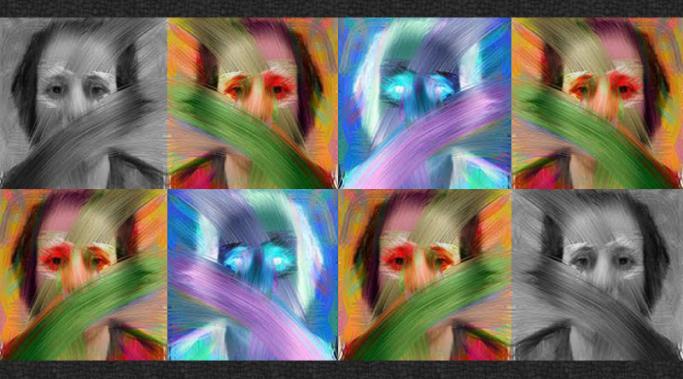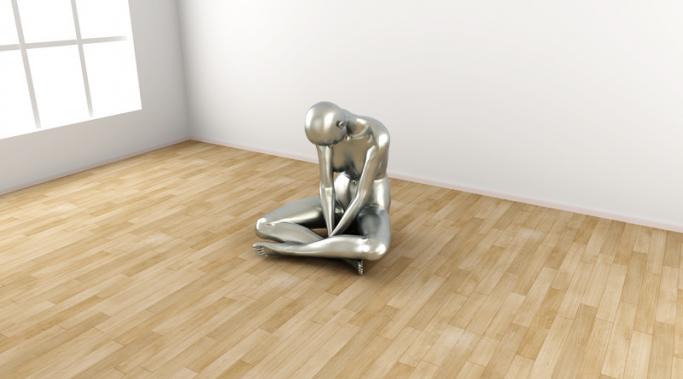Blogs
tneely
You can feel yourself slipping away. Again. You don't feel anything. You don't see the dirty laundry and dishes that have piled sky high. You don't hear the kids yelling, the dog barking or your wife talking. Life is on mute.
Or quite the opposite, you find yourself in such emotional chaos that you see, hear and feel everything simultaneously. You can't think straight. You don't care about anything or anyone anymore. Except you really do which is why you decide to seek support in addressing your mental health issues. However, finding LGBT friendly mental health care can be very challenging, particularly for the uninsured. I've been there.
If you are living with unresolved trauma memory, whether or not it's posttraumatic stress disorder (PTSD) or dissociative identity disorder (DID), you will almost surely bewilder people some of the time. We both know you want this not to happen, but, as is surely obvious to us, you have little or no choice in the matter, other than to avoid triggers to the extent that you know them and can anticipate them. The real problem here is that you can't avoid all triggers. So, you will bewilder and maybe even frighten people a certain amount of the time.
I was driving in the car this weekend thinking about how much better I am at paying attention to auditory stuff than I was even a year ago. I listen to audiobooks all the time and podcasts galore and I think it's really made a difference. As soon as I had the thought, though, I got to wondering about would I have ever noticed I had a hard time listening if I didn't have this adult ADHD diagnosis. Hm, I wonder what a difference an adult ADHD diagnosis makes ...
Whether you are a depressed woman facing what could be several years of menopausal symptoms or a spouse/partner living with said woman, there will definitely be challenges. Depression on its own is bad enough, but add the complications of menopause to it and you get a veritable soup of sorrows.
Communication is challenging for many of us from time to time. For those with a mental health diagnosis and his or her support team, good communication is imperative.
Whether you’ve had five cups of coffee or just finished a workout, many people with mental health issues struggle with sleep. Typically, there seems to be problems at both ends of the spectrum – either you can’t fall asleep or you can’t wake up. Sleep issues can come from anything, really. Changes in medications can trigger differences in sleep patterns and lifestyle changes can also be a factor.
However, if some people do not get enough sleep, negative behaviors may arise because they can’t see the world around them clearly. Some of these behaviors may result in self-harm.
PTSD triggers. For those of us with a mental health diagnosis (diagnoses), the definition of a trigger is far more than a level with a catch or means of releasing it. Triggers are a response to stimuli and a result of past trauma. PTSD triggers can include certain odors, a particular tone of voice, certain objects, places and so much more. The brain creates a physiological response: increased heart rate and respiration, sweating, a need to escape, a need for silence, sleeplessness, hyper vigilance and so much more. Responses to triggers are unique to each individual. No cookie cutter responses here!
All things are transient. This is neither good nor bad. Or, both good and bad. There are things that we love and have in our life that could end, giving us a sense of loss. However, this feeling of grief is also transient.
Things are changing for us constantly everyday. Most of it goes unnoticed and much of it is for our betterment. We handle it constantly and well. It is when a change "feels" out of our control that we feel afraid that we can't handle it and panic. No matter how nonsensical, the Anxiety convinces us we will go off some metaphoric cliff, n'er to return.
In a lot of ways, "eating disorder recovery" is a sort of vague, amorphous thing. How many times have you (or your loved one) said, "I just want to be recovered already!" Or is that just me? In one of my journals from early recovery I wrote, "I want a magic pill, a prayer, a chant -- something I can say or do and wake up the next morning and be normal."
Learn tools to talk back to negative thoughts that keep you stuck. Acting opposite will help you take small steps to make big changes in your life.









